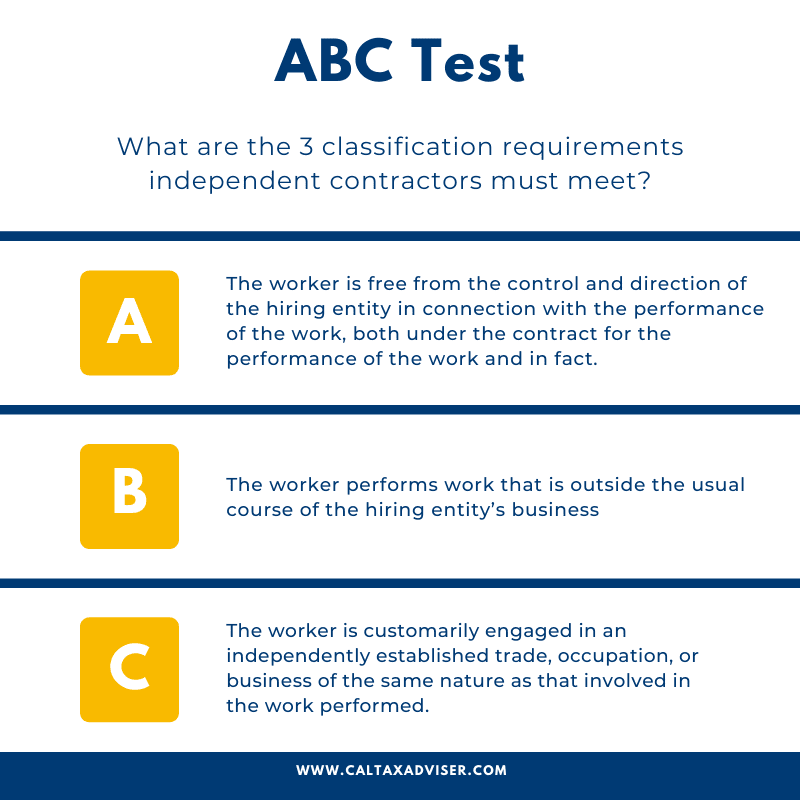What Will 2021 EDD Audits Look Like?
Watch our video below to learn how the last 12 quarters affect your EDD audit criteria.
Have You Received an EDD Audit Letter?
The California Employment Development Department (EDD) sends audit letters through the mail. If you receive an audit letter, you have 30 days to reply. Typically, the agency audits back three years from the most recent tax filing. However, EDD sometimes will audit the previous year’s tax filings.
Right now, for example, an EDD audit period would span from 2018 to 2021; the standard 12 quarters (three years time). At this time, that means that your audit process will include the years before AB-5 was signed into law and those years after. EDD audits in 2021 will look different because of the two different verification methods: AB-5 and the Borello test.
What is AB-5?
The law in California named AB-5, effective January 1st 2020, changed the way EDD classifies workers as either W-2 or 1099s. Before January 1st, 2020, the old rule, the Borello test, was in effect. The Borello test was broader and in the grey zone on who could be classified as a 1099 contractor.
In the case of current California EDD audits, auditors are making determinations on both the old rule for the appropriate time period and on the new ABCs of contractor classification as set forth in AB-5.
Because of this, in some cases, there may be a worker who is classified as an independent contractor under the old rule, and as an employee under the new rule because they don’t meet the more stringent requirements.
According to the California Department of Industrial Relations, workers are employees, not independent contractors unless all of the following requirements are met:
- “The worker is free from the control and direction of the hiring entity in connection with the performance of the work, both under the contract for the performance of the work and in fact;
- The worker performs work that is outside the usual course of the hiring entity’s business
- The worker is customarily engaged in an independently established trade, occupation, or business of the same nature as that involved in the work performed.”
Under AB-5’s rules, 1099 contractors have to meet all three of the ABC’s of contractor classification to be considered to be a 1099 contractor. If they fail to meet even one classification, they’re automatically classified by EDD as a w-2 employee.
In audits that misclassification is proven, EDD can assess you for payroll taxes and penalties, and interest calculated based upon total payments made.
What is an Unemployment Audit?
Unemployment audits, otherwise known as Unemployment Insurance (UI) benefit audits, are also performed by EDD. The federal-state unemployment insurance system provides temporary wage replacement for those who have lost their jobs. The EDD conducts benefit audits periodically to protect the integrity of the UI program.
These audits aid in lowering employee UI costs. New employees are assigned a 3.4% UI rate for two to three years of employment, which fluctuate after that set time depending on your contribution to UI benefits. EDD can take from 1.5% to 6.2%, but the taxable wage limit caps at $7,000 per calendar year.
EDD benefit audits are conducted on a daily, monthly, and quarterly basis to ensure that UI is distributed to eligible claimants only. They are done by matching the information provided by employers against information provided by individuals who have filed a UI claim.
There are four types of unemployment benefit audits:
- New employee registry benefit audit
- National directory of new hires
- Quarterly wage earnings
- Interstate crossmatch
If you receive a benefit audit, respond with the completed audit form within 10 days of receiving the notice. For more information on the different types of EDD benefit audits, read our “What is an EDD Benefit Audit?” article.
What Should You Ask Yourself Before an Audit?
Before your company experiences an EDD audit, take the time to go through a profile for your 1099 contractors to ensure they have a legitimate business.
Questions to Ask:
- Do they have clients?
- Do they advertise?
- Do they have their own website?
- Do they have a business license, tax certificate, or EIN?
For some California cities, if you do business in that city, you’re required to get a business license specific to that location. For instance, if you’re a subcontractor performing work in multiple cities because you have a job that happens to be, for instance, in Del Mar (which is in San Diego and in Riverside), your subcontractors may need to get licenses just to complete that job.
To check the status of your contractor’s license, visit the California Contractors State License Board (CSLB) website. There, you can input your independent contractor’s eight-digit license (located on the contractor’s plastic pocket license), and the website will check if they are licensed under CSLB. The agency will then check the contractor’s:
- License number
- Business name
- Personnel name
- Home Improvement Salesperson (HIS) number
- HIS name
Contractors’ licenses can expire or be revoked in the middle of a job so we recommend diligently checking that each contractor has a current license. This will help avoid the fines and penalties of an EDD audit. Click here to learn CSLB’s 10 tips for hiring a licensed contractor.
How Do I Verify My Worker’s Status?
If you are unsure of the correct worker classification there are services that will run independent contractor reports to verify the status of your 1099 hires as legitimate 1099 contractors. Then you as a business owner can make an informed decision before an audit begins.
If your report uncovers that your workers are misclassified, you can then take the next steps to correctly classify them, or work together with your workers to ensure they then meet the criteria to become a 1099 contractor.
EDD audits are time-consuming and a hassle. Business owners undergoing an EDD audit should be prepared for each step of the process. Read our article on what to expect in an EDD audit for more information.




